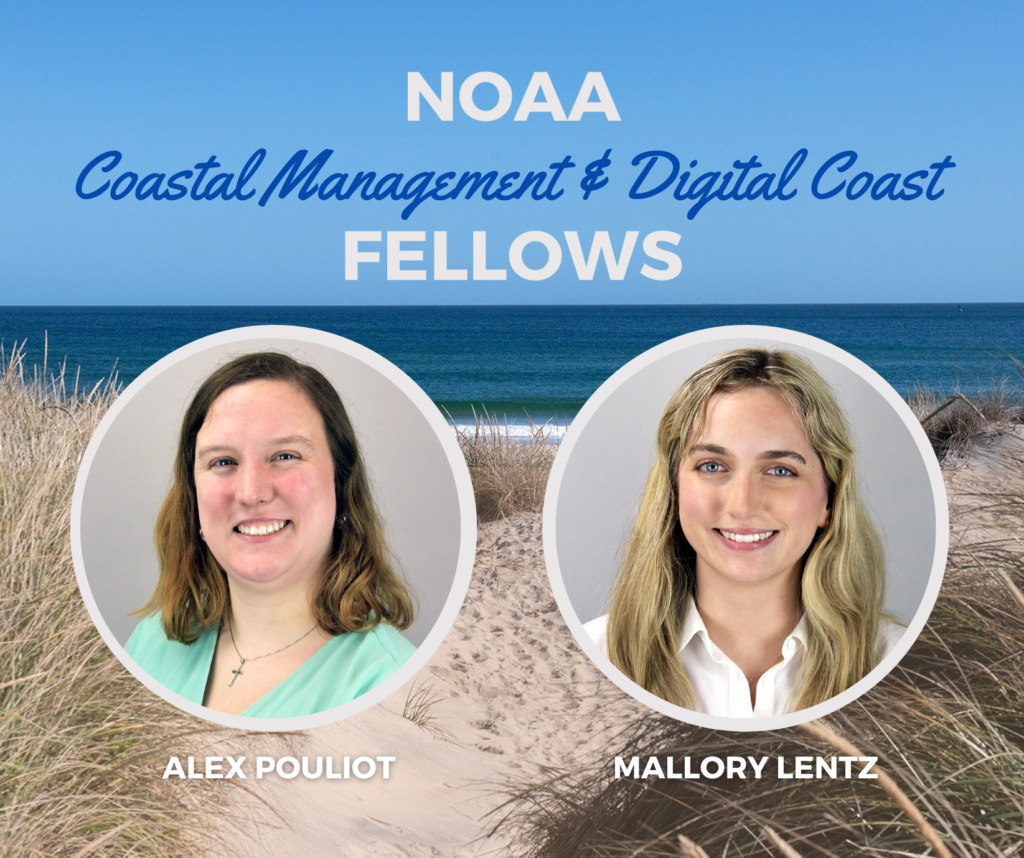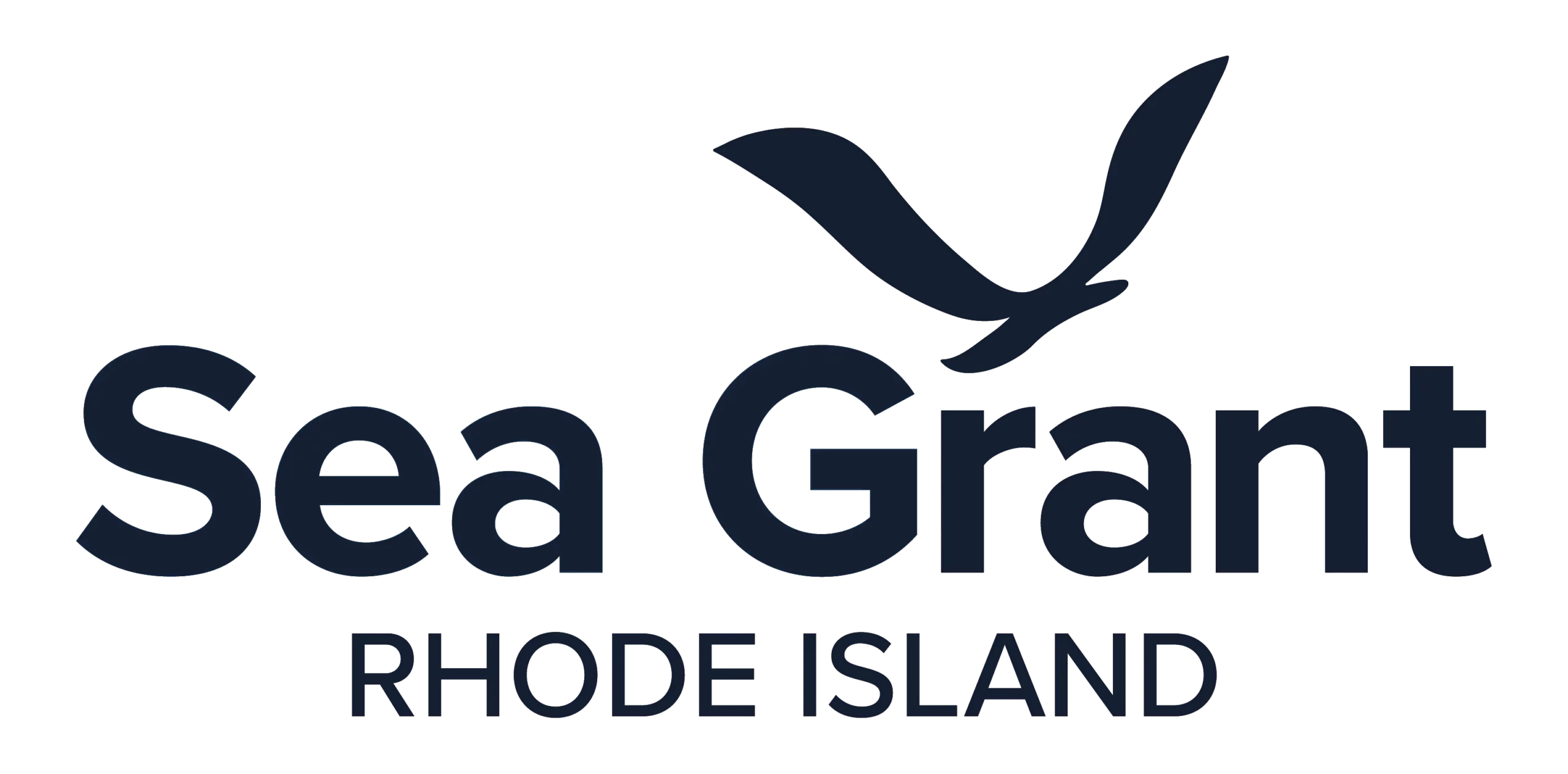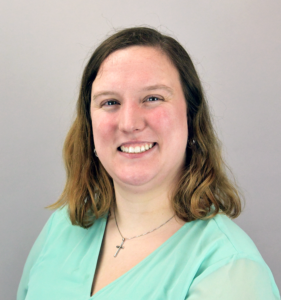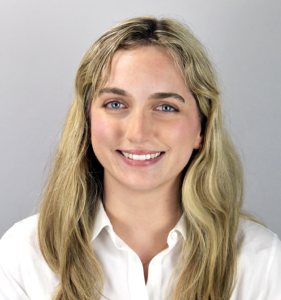 Following an intense three-month application process, University of Rhode Island graduate students Alex Pouliot and Mallory Lentz have been awarded NOAA Office for Coastal Management Fellowships for 2024-26. Both recent graduates from URI’s Master of Environmental Science and Management (MESM) program, the two were among 37 applicants nationally for two Digital Coast Fellowships and seven Coastal Management Fellowships.
Following an intense three-month application process, University of Rhode Island graduate students Alex Pouliot and Mallory Lentz have been awarded NOAA Office for Coastal Management Fellowships for 2024-26. Both recent graduates from URI’s Master of Environmental Science and Management (MESM) program, the two were among 37 applicants nationally for two Digital Coast Fellowships and seven Coastal Management Fellowships.
The fellowships match postgraduate students with projects proposed by state coastal zone management programs and selected by NOAA Office for Coastal Management. Rhode Island Sea Grant assists with recruiting and nominating Rhode Island students for national review.
Pouliot was matched for a Digital Coast Fellowship with the Madison, Wisconsin-based Association of State Floodplain Managers (in partnership with the Coastal States Organization), where she will develop tools and trainings for local practitioners to facilitate the implementation of best practices in local floodplain and coastal management, with the goal of reducing flood risk and enhancing community resilience.
After graduating from the Massachusetts Institute of Technology with a bachelor’s degree in biology, Pouliot realized that lab research wasn’t the field for her. “I wanted to move into protecting the beaches I love and was looking for a way to get back into environmental science,” she says.
After joining the MESM program, Pouliot became the 2023 Rhode Island Sea Grant Coastal Resilience Fellow, where she worked with communities to identify coastal resilience priorities and actions, sparking her interest in coastal management.
Pouliot, who hails from Warwick, says she’s particularly excited to dig into education related to “no adverse impact” floodplain management, where the focus goes beyond simply preventing flooding to increasing flood resilience and ensuring that the impacts aren’t pushed onto other communities. In the long term, she says she would like to return to an organization like Sea Grant, where she can focus on community engagement and extension, or move into policy, envisioning herself in the role of a translator who explains science to policy makers and policy to scientists.
Lentz, who hails from Severna Park, Maryland, was matched with the Connecticut Department of Energy and Environmental Protection for a Coastal Management Fellowship, where she will spearhead a multipronged approach for addressing coastal public access needs in Connecticut through an equity and environmental justice lens.
She has spent the past five years at URI, earning a bachelor’s in wildlife and conservation biology, then completing the MESM program with a focus in environmental communication, along with GIS and science writing certifications.
As an undergraduate, Lentz served as a research assistant to Dr. Colleen Suckling, studying marine invertebrates and aquaculture. After graduation, she became a park naturalist for the Rhode Island Department of Environmental Management at the Beavertail State Park Aquarium and at Roger Wheeler State Beach, where her duties included educating members of the public on the importance of marine ecosystems and their inhabitants.
Her work as a naturalist gave her experience holding one-on-one and group conversations in the field, which she says helped push her toward community engagement work.
Lentz will be based out of Hartford, Connecticut, but her project, which she describes as “a dream scenario,” is statewide. She’s particularly excited to work with different communities, building and fostering relationships while working on coastal access. After the fellowship concludes, she expects she’ll continue to work in state government.
— by Georgia Young, Rhode Island Sea Grant Communications Fellow


